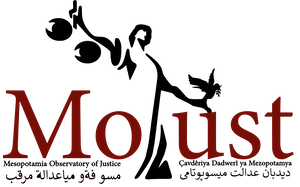
Rojin Mukriyan
Rojin MUKRIYAN is a PhD candidate in the department of Government and Politics at University College Cork, Ireland. Her main research areas are in political theory and Middle Eastern politics, especially Kurdish politics. She has published articles in the Journal of International Political Theory, Philosophy and Social Criticism, and Theoria. Her research has thus far focused on the areas of Kurdish liberty, Kurdish statehood, and Kurdish political friendship.
Articles:
- The Concept of the Kurdish Political:
By applying Schmitt’s conceptual framework, the authors in this paper argue that the Kurds, especially in their struggles for autonomy and independence, can be viewed as fulfilling Schmitt’s criterion for tellurian partisanship and forming an at least nascent constituent power. They argue that Turks and Kurds are enemies in Schmitt’s explicitly political sense. They constitute a threat to each other’s political existence. The Kurds exhibit the behavior of a Schmittian people or nation. They fight, against Turks, for their political existence. They aim to govern themselves, and so instantiate the de facto attributes of state sovereignty. They thus seek to constitute themselves as a free and independent people, thereby achieving a genuine political existence in the Schmittian sense.
https://journals.sagepub.com/doi/abs/10.1177/1755088220966345
- Kurdish Liberty:
In this paper the authors argue that the formation of an independent Kurdish state is fundamental for achieving Kurdish liberty. Following this, they combine certain elements of the anarchist and republican conceptions and offer a synthetic communitarian view that could serve as a better foundation for Kurdish aspirations for liberty.
https://journals.sagepub.com/doi/full/10.1177/01914537211040250
- The Domination of the Kurds:
The authors, in this article, try to develop a conception of a distinctly political form of domination. They do this as an attempt to understand the kind of domination the Kurdish people suffer. Borrowing from Carl Schmitt’s framework of differing degrees of political enmity, they argue political domination is best understood as an existential form of domination whereby one people aim to prevent the independent existence of another people mainly through the uncontrolled power and extreme violence involved in absolute enmity. This conception of existential domination is offered as an example of a non-moralised, norm-independent account of domination. They then argue that the Kurdish people, who are the largest stateless people in the world, suffer existential domination from the absolute enmity expressed towards them by the four nation-states they find themselves dominated within: Turkey, Syria, Iraq and Iran.

